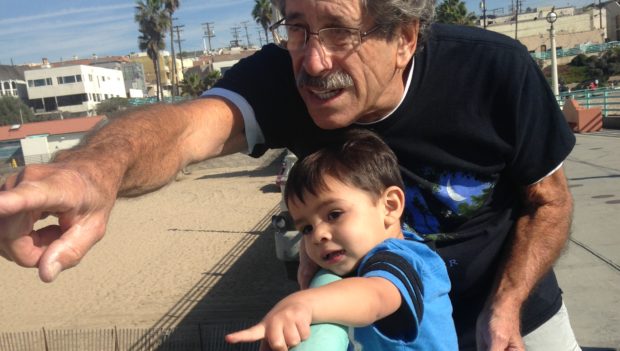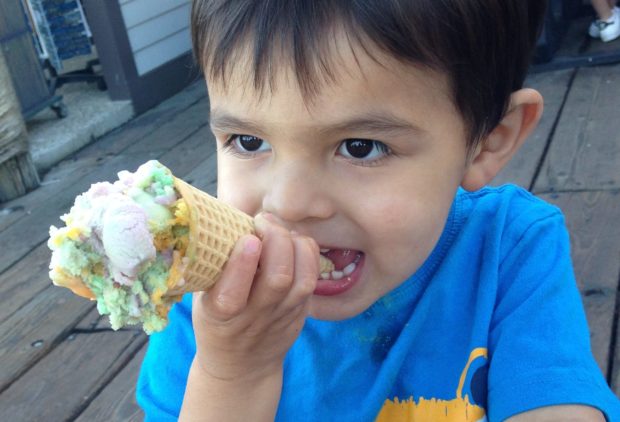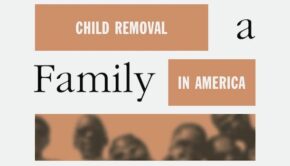The Long Run: An Intergenerational Examination of Whether to Buy Your Child a Churro
I married a loose woman. Before our first date, she warned me “I’ll try to be on time, but I tend to run late.” My ex had been blind to her own flaws, preferring to blame me for her unhappiness, so I was smitten by this person who seemed to both understand and accept her own struggles. C.C. arrived on time to the bar that night back in 2006. But I soon discovered she didn’t set alarms, treating time as something that happened to her rather than a rubric for her day. She double-booked her social calendar because she enjoyed the feeling of abundance it brought. She occupied space with a similar looseness. Papers and cups filled her car. Clean laundry crouched in a lump on her bare mattress. Once she lost her wallet on the way to the airport, which was how she learned that you can, in fact, fly without ID.
This inattention annoyed me and appealed to me. It wasn’t just that it accompanied other, more categorically positive qualities (spontaneity, generosity, chill). And it wasn’t that she was completely irresponsible or carefree—she has a career and good credit (now), and she has, for three years and counting, kept our son generally happy, fed, and out of traffic.
But when she walks into a room, she exhales. Keys and sweater flung, toddler freed from her arms. It’s clear that she’s not worrying about the next thing—the lunch that must be prepared, the overdue nap, the bag we’ll need to pack for our next outing.

I wasn’t raised like this.
When my sister and I were permitted to eat in the backseat of our family car, the 1965 Thunderbird my dad had restored himself, we received a tutorial about how to bite into a Wheat Thin so that the crumbs were immediately sucked back into our mouths.
When I injured myself while playing Olympic gymnast in the living room, my dad inspected the furniture first because, he explained, “You’ll heal. It won’t.”
At 18 months old, I decided to help my dad wash the car by polishing it with a piece of sandpaper. I know this story because I have heard it at least annually for my entire life. It’s funny, but the subtext is: I was and am a destructive force hurling through an orderly world, which cannot keep its nice things.
Certain objects in my childhood home were like rival siblings—demanding, temperamental, and potentially cuter than I was. The baseboards that lined our hallway were threatened by toy strollers and the vacuum cleaner (which had survived two generations thanks to impeccable care). The kitchen table insisted upon a thick piece of cardboard between its oak surface and any piece of paper on which I was drawing. If I showered in my parents’ bathroom, the glass door had to be wiped dry to avoid water spots.

My parents weren’t strict in other ways. My mom, a children’s librarian, let us read whatever we wanted, even as she must have known what bullshit was the Sweet Valley Twins series. My dad, who had been a mouthy and curious child himself, never told us to stop arguing with him. When we misbehaved, we got long lectures about the logic of doing something this way rather than that way, but we were never spanked and only occasionally sent to our rooms. But the lectures were intense. More than once, I requested that my dad stop using the phrase “in the long run.” I’d heard it, and didn’t want to keep looking so far ahead. But the vision worked its way into my system like a virus.
Committed to developing the financial cushion neither of them had grown up with, my parents were equally precise with money. My dad was an engineer and we had all the trappings of middle class life. A two-story tract house. Multiple cars (old but gleaming). Gymnastics and art classes ($20 through our local Parks & Recreation department). But the line between necessities and things that were a waste of money was thick and black. The times my parents bought us a snack on the go, instead of retrieving a granola bar from my mom’s bottomless purse, stand out in my mind like trips to Disneyland. And when we actually went to Disneyland, we brought our own snacks; at Sea World my aunt made my cousin let me take a bite of his churro, and I can still taste the cinnamon and sugar.
Once a week we ate dinner at Leo’s Mexican Food, the restaurant my dad had been going to since it opened in 1948, when he was five years old. My sister and I ate free kids’ bowls of rice and beans until the staff informed us we were old enough to pay for meals. I couldn’t have been older than six or seven, but my ears burned with shame. After that, we ordered taquitos or quesadillas a la carte. Once, at the next table, we watched the waitress set a combo plate in front of a girl just a little older than me: burrito smothered in red sauce and melted cheese, rice and beans, the works.
“There’s no way she’s going to finish that,” my parents whispered. What our family lacked in abundance, we made up in moral superiority.
Things the Kleins Did Not Do included: stay in hotels, buy clothes labeled “Dry Clean Only,” order pizza, order beverages with dinner, stay with babysitters, drink alcohol, watch non-PBS TV before the age of ten, change schools before graduating, let projects go unfinished, leave lights on, lie.

When I look at my parents from the vantage point of adulthood, I see them holding their breath for 26 years, which is how old I was when my mom stopped breathing entirely. She ate peas and carrots without butter every day for lunch and took a long walk every evening, and she got cancer in her fifties.
I see that they were working without a net. All their parents were dead by the time they were in their mid-thirties. My father’s father had died from an infection following a routine surgery when my dad was just a toddler. My mom’s father was a scientist who drank heavily and moved his family every year in hopes of a fresh start that never came.
They dreamed of stability for themselves and for us, and they delivered. Oh, how they delivered.
Three years into parenthood, I marvel at how meticulous they were. I say meticulous, but what I’m thinking is “perfect,” a word I’m trying to ban from my vocabulary because of what it unleashes in me. My middle school journals are full of long lists about my plans to be become perfect: to lose weight, increase my popularity, become a better dancer, stop biting my nails. Every night was New Year’s Eve. Every morning was a bright New Year’s Day. And every afternoon was mid-January, the weight of reality becoming so intense that all I wanted to do was watch talk shows and eat cookies.
My dad believes there’s a right way of doing everything, and that if he looks long enough and tries hard enough, he’ll achieve it. This mentality has its benefits. He taught himself to edit video on his computer, a mission many people in their mid-seventies might have found overwhelming. But it also creates endless, exhausting rabbit holes. He’s been studying for his motorcycle driver’s test because he doesn’t want to let his license lapse. Never mind that he hasn’t ridden his dusty orange Honda since the gas crisis of the 1970s. He believes in finishing what he starts.

There’s always a voice in my head telling me what I should be doing, as sticky as the nursery rhyme songs our son Dash loves. But C.C.—and fourteen years of therapy—helped me see what you may have guessed from the start: that rigidity begets anxiety, failure leads to growth, and joy is a worthy pursuit after all.
There’s a fine patina of Cheerio and Goldfish crumbs covering the backseat of my car. I let Dash pound our walls with his small wooden hammer. My purse is full of smashed granola bars just like my mom’s, but Dash had his first churro at the zoo last week. His sticky hands have smeared sugar and cinnamon across our entire lives.
I wish I could say I am at peace with this life I half chose, half submitted to. But my dad is the official owner of the walls Dash pounds; his frugality and in-the-long-run investments eventually paid off, and he bought a house we rent from him. I often feel like a spoiled, guilty failure. I wish my mom, who had a better memory and a softer touch, was alive to assure me I’m not doing everything wrong. We spent a weekend at my dad’s house recently, during which time he took Dash out for ice cream twice. So maybe he’s telling me in his own way that there’s more than one way.

Questions of financial and spatial rigidity are inextricable from privilege—it’s easier not to cry over spilled milk when there’s more milk in your Sub-Zero fridge—but they are not exclusive to the middle and upper classes.
Years ago I read Random Family, Adrian Nicole LeBlanc’s study of a poor Puerto Rican family in the Bronx. One of her subjects managed to stretch her welfare check, cover her expenses and play by the rules. Another indulged her desires and loaned money to friends in need; she was always borrowing by the end of the month, but she was sweet and generous. LeBlanc’s depiction of the second woman as something other than a fuck-up was a revelation to me.
I used to work at a nonprofit that served people who were trying to leave gang life. They lived the West Coast version of Random Family—chronically poor, in neighborhoods plagued by violence. Now I work at a nonprofit a half mile away, which provides free tutoring and writing programs for kids. They come from the same communities as the gang members, but they’re writing short stories and applying to college. The difference, as far as I can tell in my highly unscientific study, is family. The gang members almost universally had parents who abused or neglected them, and/or who were gang members themselves. The writing-program kids have parents who are loving, attentive strivers—often but not always immigrants who believe their kids can have careers and creature comforts if the whole family works hard enough.
The second group is intimately familiar to me, but I started working with the gang members, not coincidentally, immediately following the four hardest years of my life, a trifecta of miscarriage, marriage problems, and cancer that opened my eyes to the limits of hard work. I fell in love with the battle-scarred, messy, hopeful, humorous gang members. Equipped with the hyper-vigilance that accompanies trauma and prison time, they had amped-up bullshit detectors. Even if it was, usually, their own parents who’d first betrayed them, they also saw through the lies of society: The cops are there to help you. You can be anything you want when you grow up. You will grow up.
As a newly disillusioned striver, I looked to them for guidance. When you’re hardwired to crave order, how do you live with the knowledge that it could be blown to pieces at any moment?

The answer, of course, is balance. But parenting is a thousand decisions a day—a thousand opportunities to account for the last mistake, a thousand opportunities to make a new one, a thousand opportunities to declare what kind of parent you are. It is balance only in the sense that I feel like I’m always walking a tightrope.
C.C. took an art class in which the teacher told her, “There are two types of students: those who need to hold the pencil tighter, and those who need to loosen up. Do you know which one you are?” She did, and I know which I am. I don’t know which Dash will be, just that he will have both our styles embedded into his default settings, and that eventually he will also carry the habits of the people he meets, whether they teach him how to roll a joint or make a perfectly flaky pie crust. We don’t have control, only influence. That has to be enough.
Feature photo by Cecilia Alanís
This is the first installment in a new column by Cheryl Klein: Hold it Lightly. This became Cheryl’s mantra while riding the aptly-named adoption roller coaster, and has proven applicable to most aspects of parenting as well. She’ll be writing about adoption, muthahood, and her experiences as a recovering control freak. Follow MUTHA on social media and sign up for our mailing list to keep up…






Pingback: Thirteen Ways of Looking at Exhaustion - Mutha Magazine